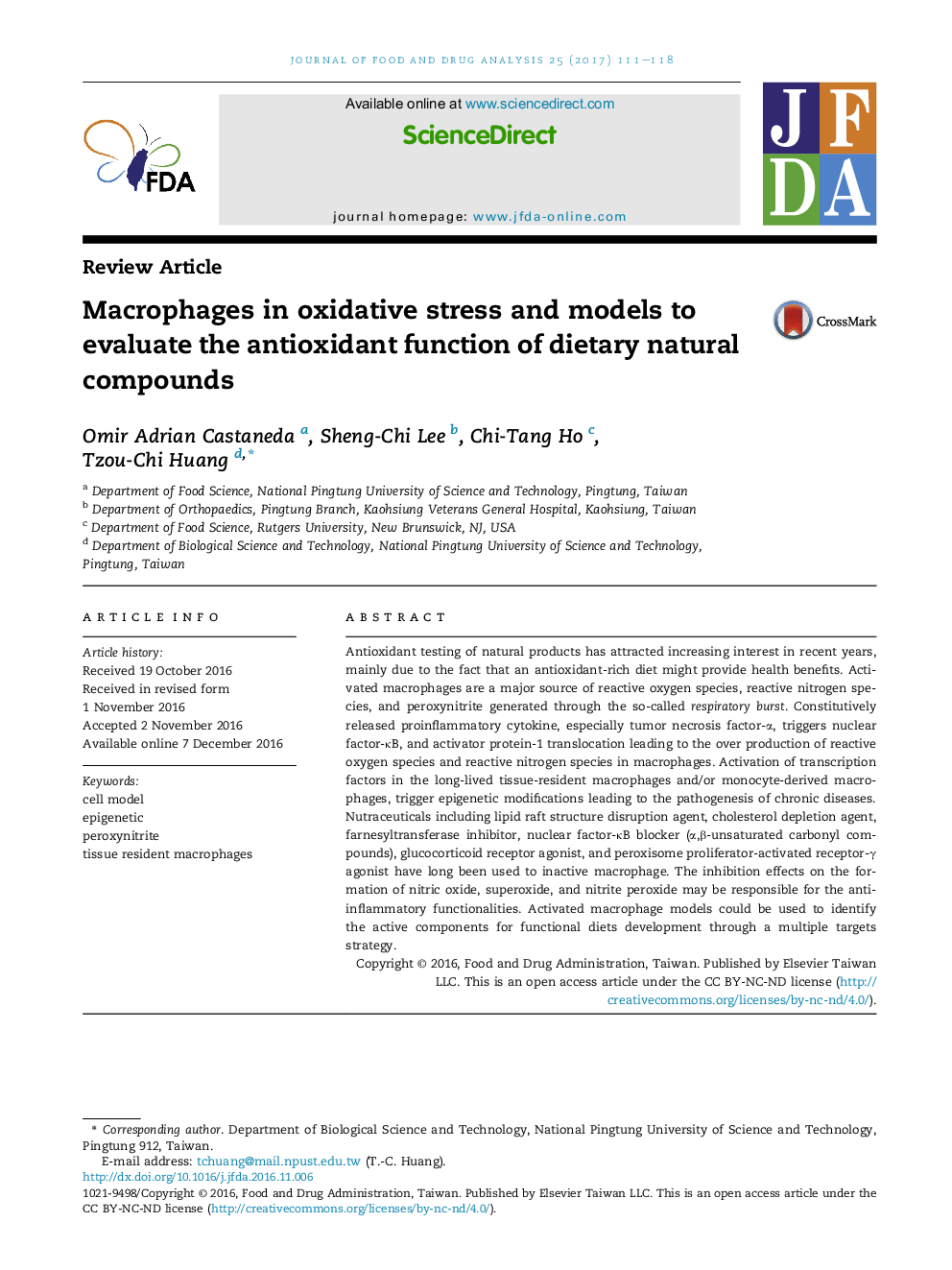| Article ID | Journal | Published Year | Pages | File Type |
|---|---|---|---|---|
| 5551076 | Journal of Food and Drug Analysis | 2017 | 8 Pages |
â¢Activated macrophages may possibly cause pathogenesis of chronic diseases.â¢Nutraceuticals' reaction oxygen species inhibition in activated macrophages causes anti-inflammation.â¢A multitarget pathway for the mechanistic role of nutraceuticals is proposed.
Antioxidant testing of natural products has attracted increasing interest in recent years, mainly due to the fact that an antioxidant-rich diet might provide health benefits. Activated macrophages are a major source of reactive oxygen species, reactive nitrogen species, and peroxynitrite generated through the so-called respiratory burst. Constitutively released proinflammatory cytokine, especially tumor necrosis factor-α, triggers nuclear factor-κB, and activator protein-1 translocation leading to the over production of reactive oxygen species and reactive nitrogen species in macrophages. Activation of transcription factors in the long-lived tissue-resident macrophages and/or monocyte-derived macrophages, trigger epigenetic modifications leading to the pathogenesis of chronic diseases. Nutraceuticals including lipid raft structure disruption agent, cholesterol depletion agent, farnesyltransferase inhibitor, nuclear factor-κB blocker (α,β-unsaturated carbonyl compounds), glucocorticoid receptor agonist, and peroxisome proliferator-activated receptor-γ agonist have long been used to inactive macrophage. The inhibition effects on the formation of nitric oxide, superoxide, and nitrite peroxide may be responsible for the anti-inflammatory functionalities. Activated macrophage models could be used to identify the active components for functional diets development through a multiple targets strategy.
Graphical abstractDownload high-res image (217KB)Download full-size image
